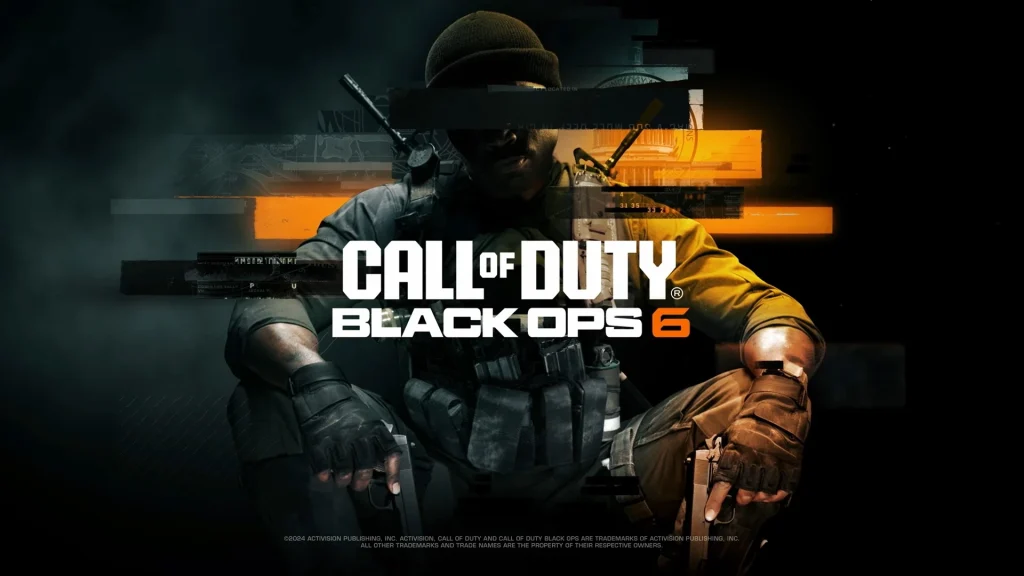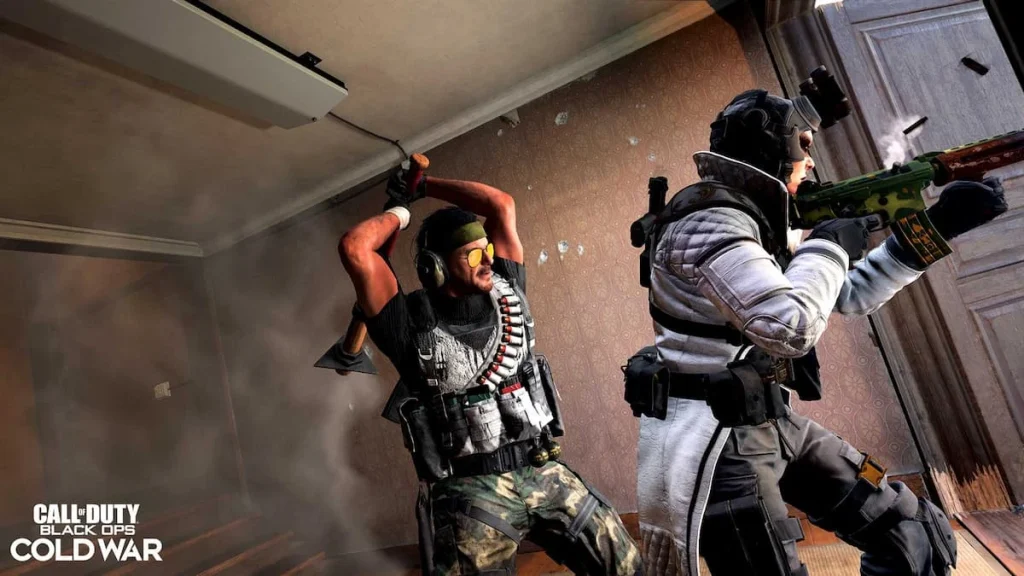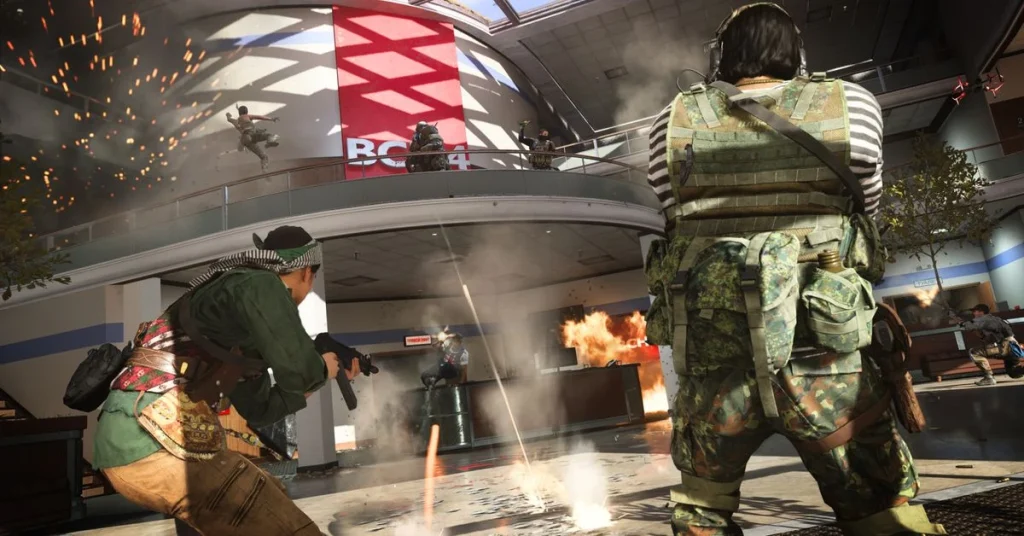Advertisement
Popular Now
Call of Duty: Black Ops 6 continues the franchise’s legacy of fast-paced action, engaging multiplayer modes, and cinematic single-player campaigns. However, as with many modern multiplayer games, Black Ops 6 has introduced a system that has divided its player base—Skill-Based Matchmaking (SBMM). While this system is designed to create balanced and competitive matches, it has sparked significant debate and frustration within the community. Players argue that SBMM negatively affects gameplay, diminishes the casual experience, and incentivizes poor player behavior. In this article, we will dive deep into the complexities of SBMM in Call of Duty: Black Ops 6, discussing its advantages, drawbacks, and long-term effects on the game.





1. What is Skill-Based Matchmaking (SBMM)?
Skill-Based Matchmaking is a system that pairs players of similar skill levels in multiplayer matches to ensure competitive balance.How SBMM Works
SBMM uses algorithms to assess a player’s skill based on factors such as kill/death ratio, accuracy, and performance in previous matches. The system then places players in lobbies with others of similar skill. In theory, this ensures that each match is balanced, preventing less experienced players from being outmatched by highly skilled veterans.The Goal of SBMM
The primary goal of SBMM is to create a fair and challenging experience for all players. By matching players of equal skill, SBMM aims to make the game more enjoyable and prevent games from being too one-sided.2. SBMM and the Casual Player Experience
For casual players who play Black Ops 6 intermittently, SBMM can make the game feel overly competitive and less enjoyable.The Casual Perspective
Casual players often play video games for relaxation and fun. However, SBMM can create intense matches, making it difficult for these players to unwind and enjoy the game. Instead of encountering a mix of skill levels, they find themselves matched with players who are similarly skilled, which can make each game feel like a grind rather than a recreational activity.Increased Stress Levels
Some casual players have reported that the pressure of always being in a competitive environment diminishes their overall experience. Constantly facing equally skilled opponents can lead to frustration and stress, as there is little opportunity for casual enjoyment or “easy” matches.3. Impact on High-Skill Players
While SBMM can be tough for casual players, it also has consequences for highly skilled players who are looking for more variety in their matches.The Challenge for Top-Tier Players
High-skill players may face lobbies filled with other top-tier players, resulting in consistently challenging matches. While this may appeal to those looking to hone their skills, it can also become exhausting over time. Every match turns into a test of endurance, with little room for experimentation or relaxation.Stifled Gameplay Variety
Skilled players may feel stifled by SBMM because they are less able to try new weapons, strategies, or playstyles without risking their performance. In order to keep up with the competition, they often have to stick to “meta” tactics, which can lead to a repetitive and less enjoyable gaming experience.
4. SBMM and the Decline of Pub-Stomping
In previous Call of Duty games, pub-stomping—where high-skill players would dominate lobbies filled with less experienced players—was common. SBMM has reduced the frequency of pub-stomping, but not without controversy.The End of Easy Wins
Many players enjoyed the satisfaction of dominating less experienced players in public lobbies, often leading to high kill counts and impressive gameplay clips. However, with SBMM, these kinds of one-sided matches are now rare, leaving players who thrived on pub-stomping feeling disappointed.A Divided Community
Some players appreciate the shift toward fairer matches, but others miss the unpredictability of older Call of Duty games, where lobbies had a broader mix of skill levels. The removal of pub-stomping has contributed to the divide within the community over whether SBMM is a positive change.5. SBMM’s Effect on Player Retention
One of the goals of SBMM is to retain players by making matches more balanced and preventing less-skilled players from being discouraged. However, its long-term impact on player retention is more complex.Improving the New Player Experience
SBMM helps new or less experienced players by placing them in matches with others at their skill level. This prevents them from being overwhelmed by highly skilled players, giving them a chance to learn the game at a comfortable pace. As a result, SBMM may increase the retention of new players.Alienating Veteran Players
However, veteran players who feel stifled by the intense competition may eventually leave the game. The constant pressure to perform at a high level can lead to burnout, especially when combined with the lack of variety in opponents. Thus, while SBMM may help new players stick around, it risks alienating long-time fans.6. The Problem of Reverse Boosting
One of the unintended consequences of SBMM is the rise of reverse boosting, where players deliberately perform poorly in matches to lower their skill rating and get matched with less skilled opponents.What is Reverse Boosting?
Reverse boosting involves players intentionally dying or underperforming in several matches so that the SBMM system lowers their matchmaking rank. Once their rank is lowered, they can join lobbies with less skilled players and dominate matches.Why Players Reverse Boost
Some players resort to reverse boosting to avoid the high-pressure environments of SBMM and experience more relaxed matches. Others use it to create impressive gameplay clips or achieve high kill counts in easier lobbies. Regardless of the motivation, reverse boosting undermines the purpose of SBMM and disrupts the balance of matchmaking.
7. Community Backlash Against SBMM
The inclusion of SBMM in Black Ops 6 has sparked widespread debate and backlash from the Call of Duty community, with many players expressing their frustration on social media and forums.The Vocal Critics
Some players feel that SBMM punishes skilled players by consistently placing them in high-pressure environments. They argue that matchmaking should be more random to allow for a variety of experiences, including more relaxed matches. The vocal backlash has led to numerous discussions about the role of SBMM in multiplayer gaming.The Developer's Dilemma
Developers face the difficult task of balancing the needs of casual players, who benefit from SBMM, and highly skilled players, who often feel restricted by it. While the developers have acknowledged the community’s concerns, they have been reluctant to make significant changes to the system.8. Potential Solutions to SBMM Issues
While SBMM has its flaws, there are potential solutions that could help balance the system without alienating any part of the player base.Loosening SBMM for Casual Modes
One suggestion from the community is to loosen SBMM in more casual game modes while keeping it strict in ranked or competitive modes. This would allow casual players to enjoy less intense matches without being constantly matched against players of the same skill level, while still preserving a competitive experience for those who want it.Increased Transparency
Another solution is for developers to be more transparent about how SBMM works. Many players feel frustrated by the lack of information about how their skill is calculated and how it affects matchmaking. Increased transparency could help alleviate some of the confusion and negativity surrounding SBMM.9. The Future of SBMM in Call of Duty
Looking ahead, it’s unclear whether the developers of Black Ops 6 will make significant changes to SBMM. However, the debate over its inclusion is likely to continue.A Continued Debate
As long as SBMM remains a core feature of Call of Duty, it will likely remain a point of contention within the community. The developers will need to balance the demands of both casual and competitive players to create a system that satisfies the majority.What Future Titles Could Learn
Future Call of Duty titles may need to take player feedback more seriously when it comes to SBMM. Balancing a competitive multiplayer experience with casual fun is no easy task, but it’s one that could greatly improve the longevity and player satisfaction of the franchise.















